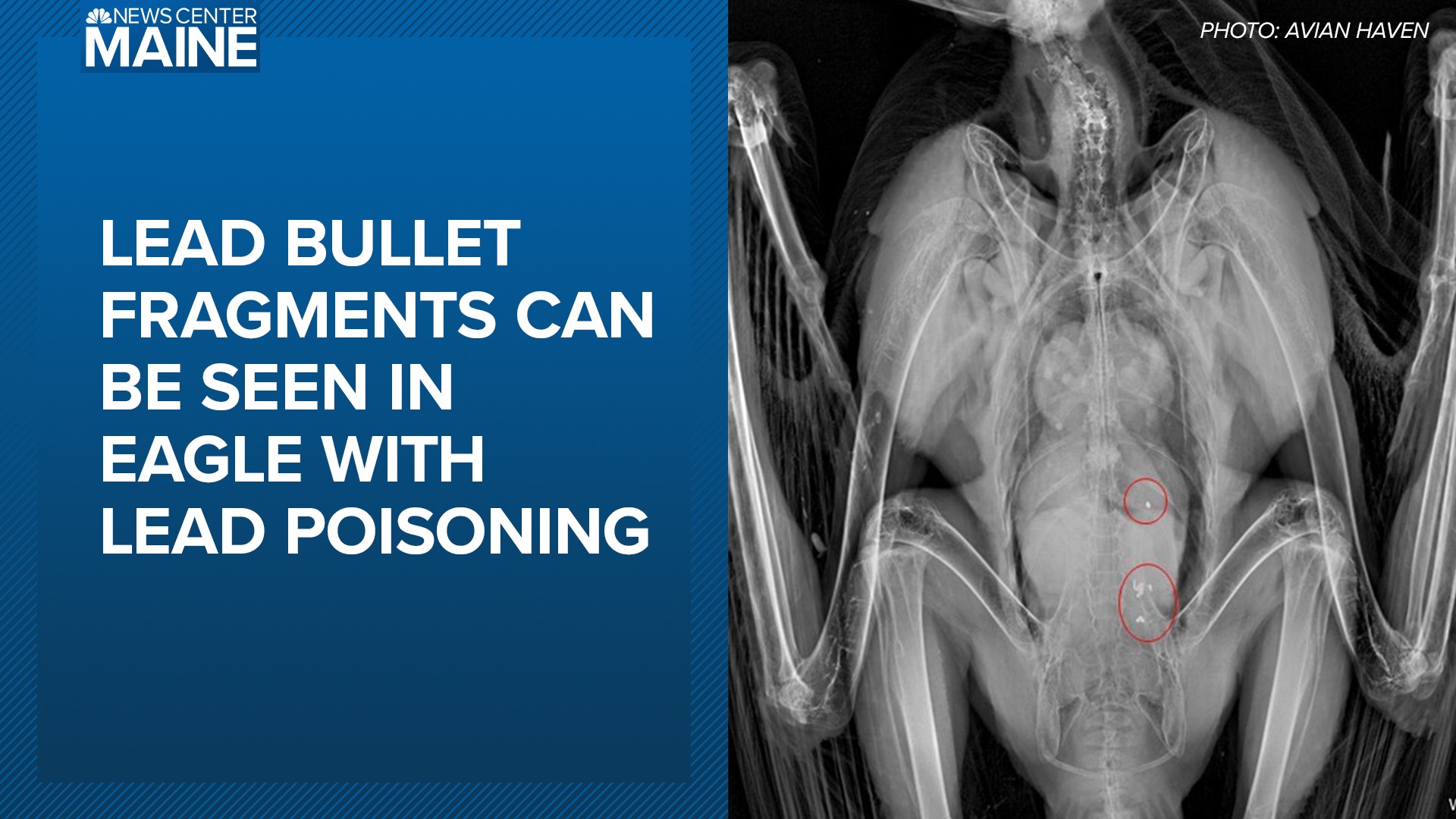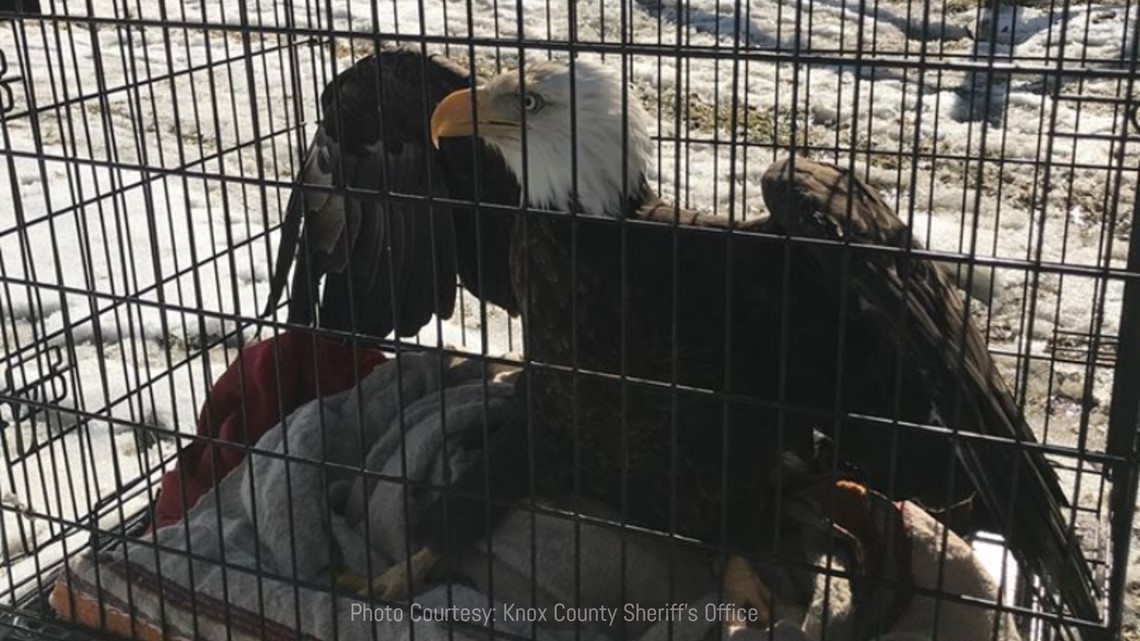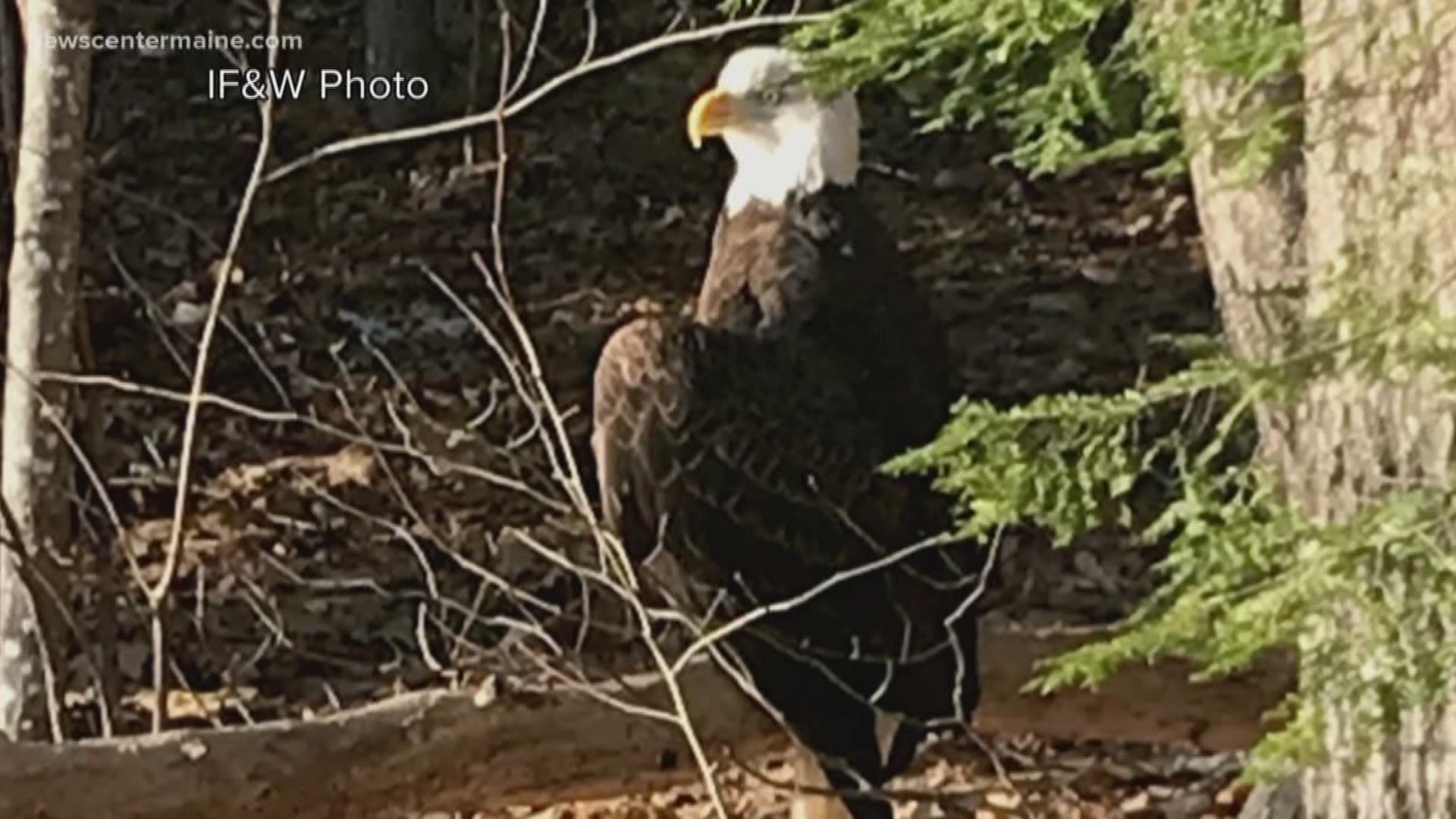Update: Avian Haven reports ninth eagle with lead poisoning
An adult female eagle's blood lead level was 'off the scale' of Avian Haven's screening instrument.
Photo: Avian Haven via Facebook

Avian Haven, a bird rehabilitation center in Freedom, reported the ninth bald eagle found with lead poisoning in 2020.
According to a Facebook post, the eagle was captured in Islesboro on Sunday after it seemed to be tangled up in tree branches and fell from a tree. The adult female eagle died before making it from the ferry to the mainland to the rehab center.
An Avian Haven volunteer drew the eagle's blood so it could be tested. Avian Haven says the eagle's blood level was "off the scale" of their screening instrument.
In an X-ray, lead ammunition fragments can be seen in her G.I. tract.
Seventh bald eagle dies of lead poisoning The bird was in 'respiratory distress and seizing' and died shortly after, Avian Haven executive director said.
On Friday morning, Avian Haven reported a bald eagle they had been trying to save died of lead poisoning.
Executive director Diane Winn says after a slight improvement, the bird was in "respiratory distress and seizing" and died shortly after. Winn told NEWS CENTER Maine the eagle had even eaten some fish the day before.
She goes on to encourage all hunters to go to http://www.huntingwithnonlead.org to see what they can do to go lead-free.
"It's a website made by hunters and for hunters" that educates hunters on the pros of lead-free hunting.
This eagle was rescued after Knox County Sheriff Deputy Daniel Landers responded to a call from a North Haven homeowner who said that the eagle appeared to be unable to fly.
Given the isolated location, the deputy was talked through on how to capture the bird. Landers and the homeowner worked together to rescue the eagle. It was then taken by ferry to Rockland where an Avian Haven responder was waiting.


According to Winn, they've had five bald eagles with lead poisoning in just the first two weeks of January 2020 and all the birds died.
Another bald eagle was brought in but was already dead. That bird also tested positive for lead poisoning.
She said once the lakes and rivers thaw out they won't see any more cases because the birds switch to fish and not left-over hunting remains.
Bald eagle dies of an advanced case of lead poisoning The eagle was found lying down on the ice at North Pond
Avian Haven reported the death of a bald eagle that was admitted Thursday, Jan. 2.
The bird was discovered lying down on the ice at North Pond in the Rome/Smithfield area. It was later determined the eagle had an advanced case of lead poisoning. Shortly after, another eagle with similar conditions and elevated blood lead levels was admitted to Avian Haven.
On Monday, Jan. 6, Avian Haven reported yet another bald eagle that was admitted for lead poisoning. This bird was found lying down on the ice on Flanders Pond in Sullivan, according to a Facebook post. This makes the third Bald Eagle admitted for lead poisoning in 2020.
“We try to avoid sharing the more heartbreaking stories that pass through our clinic, and there are many. But we feel compelled to continue sharing these cases of lead poisoning in Bald Eagles because this problem is preventable,” the Facebook post reads.
Diane Winn, Avian Haven executive director, explained to NEWS CENTER Maine that lead poisoning in wild birds is a result of ingested lead from game remains left by hunters.
“We see it quite often,” Winn said. “about two-thirds of adult eagles we see have elevated blood lead levels.”
It takes only a small amount of lead to impair or even kill an eagle, according to Winn. Lead ingestion in an eagle can either be acutely fatal or can impair coordination and stamina, which can lead to flying impairment and other injuries.
Winn said a couple of things can be done: hunters could switch to copper or non-lead ammo or, to be very sure, they could stop leaving contaminated game in the field.
The Facebook post says, “Making lead ammo illegal is a long way off in the State of Maine, but one thing that could be done fairly quickly is to regulate the proper disposal of the potentially toxic remains of all game killed with lead ammo – carcasses, gut piles, waste meat from game butchers, some of which is used as coyote bait. If this meat could be kept out of the field, the problem for eagles would pretty much disappear.”
“This is not anything against hunting,” Winn said. “The concern is about the material used.”

